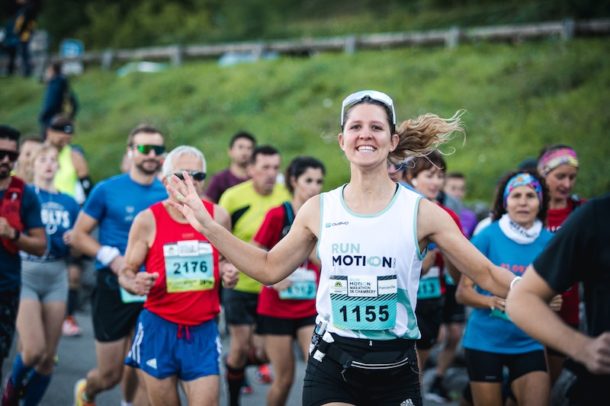
Is your race coming up this weekend? First and foremost, a hearty congratulations on the hard work and dedication you’ve put into your training! Whether your journey has been full of unexpected twists or you’ve been able to stick to your training plan to the letter, remember that each athlete’s path to competition is unique. Some of you might be grappling with pre-race nerves, while others could be feeling surprisingly calm. In this article, we’ll explore the crucial strategies for the week leading up to your race.
For the purposes of this guide, we’ll base our timeline on a Sunday race. However, these tips can be easily modified to suit a race scheduled on a different day.
Contents
Final week checklist for race preparation
As you enter the final week before your race, minimizing stress is key. To ensure a smooth race day, you should have already confirmed the following details:
- Race Specifics: Familiarize yourself with the course layout, locations of aid stations, the official start time, and your assigned wave start.
- Race Gear and Outfit: Choose your race outfit and necessary equipment well in advance. Keep an eye on the weather forecast and be ready to make last-minute adjustments if needed.
- Logistics: Plan how you will get to the starting line, your accommodation (if required), and your pre-race meal arrangements.
- Race Nutrition: Decide whether you’ll carry gels, bars, or other energy supplements, and plan your hydration strategy.
Packing: Aim to pack your gear and prepare all your essentials by the evening before the race. Avoid leaving this task for the morning of the race to prevent forgetting anything crucial.
Training in the last week
It’s common for racers to contemplate a final intense training session in the last week, often to compensate for missed training or to seek reassurance. However, this approach is a significant mistake. Not only does it fail to yield any substantial progress, but it also risks excessive fatigue, which can be detrimental to your race performance.
Optimize training load in the final week
As you approach race day, it’s crucial to enter with peak physical and mental readiness. This means significantly reducing your training intensity. If you’re feeling fatigued, consider even lighter training in the last 10 days. This tapering period isn’t about enhancing your physical capabilities; it’s about maintaining them and ensuring you’re in top form for the race.
Last week training guidelines:
- Duration: Limit your training sessions to a maximum of one hour during the final week.
- Final Race-Pace Session: Schedule a key session on Wednesday or Thursday to recalibrate. This workout should include running at your intended race pace, helping you fine-tune your speed and endurance. For example:
- Half-Marathon Preparation: Start with a 20-minute warm-up, followed by a 2km run at your target race pace, concluding with 5 minutes of cool-down at an easy pace.
- Marathon Preparation: Begin with 20 minutes of warming up, then run 2 to 3 km at your marathon pace. Focus on staying relaxed and settling into the rhythm you plan to maintain on race day.
- Rest Day: Consider taking Friday as a rest day to allow your body to recover fully before the race.
The day before the race
The day preceding the race plays a crucial role in fine-tuning your readiness. Here’s a suggested routine:
- Light Exercise: Consider a gentle 25-minute run to keep your muscles active and responsive. This is particularly beneficial if you’ve had a long journey to the race location on Friday.
- Strides: Follow up your run with four strides, each lasting 15 seconds. These should be performed slightly faster than your anticipated race pace. This exercise is excellent for loosening up your muscles and getting your body into race mode.
- Timing: Ideally, complete this light workout in the morning to ensure a minimum of 20 hours of recovery before the race.
- Flexibility: If you’re pressed for time or prefer to rest, that’s perfectly acceptable. Listening to your body is key.
Last 10 days sensations
If you find your heart rate is elevated or your physical sensations are not as expected during these final days, don’t worry. Simply switch to easier, more comfortable runs. The most important thing is to avoid overtraining in this crucial last week.
And what about nutrition during the week of the race?
Preparing your body nutritionally for races over 20 km is essential. Carbohydrate loading is key to ensure optimized glycogen stores. You will find in this article all our recommendations for nutrition during the week of the race.
- Carbohydrate Loading: Aim to increase carbohydrate intake for energy storage, but don’t overconsume.
- Maintain Regular Diet: Stick to your usual eating habits to avoid disrupting your body’s balance.
- Eating Out: If you’re dining out, especially when traveling, choose simple, non-spicy, and easy-to-digest dishes.
Remember, the goal is to nourish your body without introducing drastic changes.
Positive mindset in the final tapering week
The final week before your race is as much about mental preparation as it is about physical readiness. Embracing positivity is key during this period.
- Stay Positive: Focus on maintaining an optimistic outlook. Remind yourself of the hard work you’ve put in and the progress you’ve made.
- Manage Stress: If you find yourself feeling anxious, turn to proven stress-reduction techniques like deep breathing exercises, sophrology, or a brief yoga session. These can be found in the Mental Preparation module of the RunMotion Coach app.
- Embrace the Experience: Remember, the race is not just a challenge, but an opportunity for an enriching experience. Enjoy the journey and the culmination of your training.
As you approach race day, we extend our best wishes for a fulfilling and successful race!